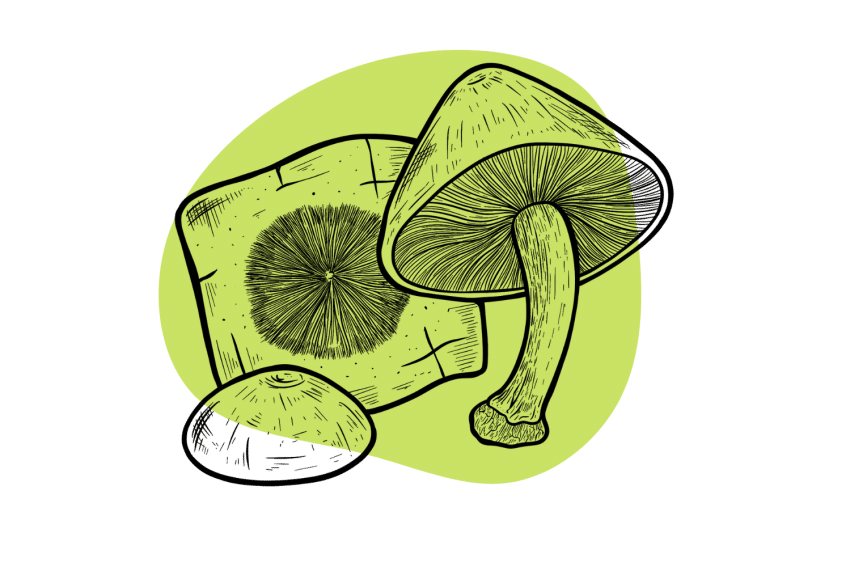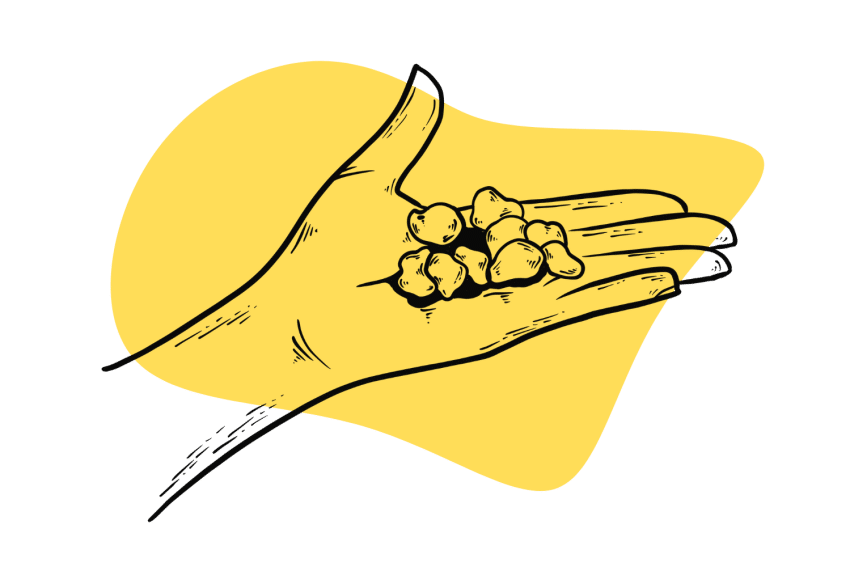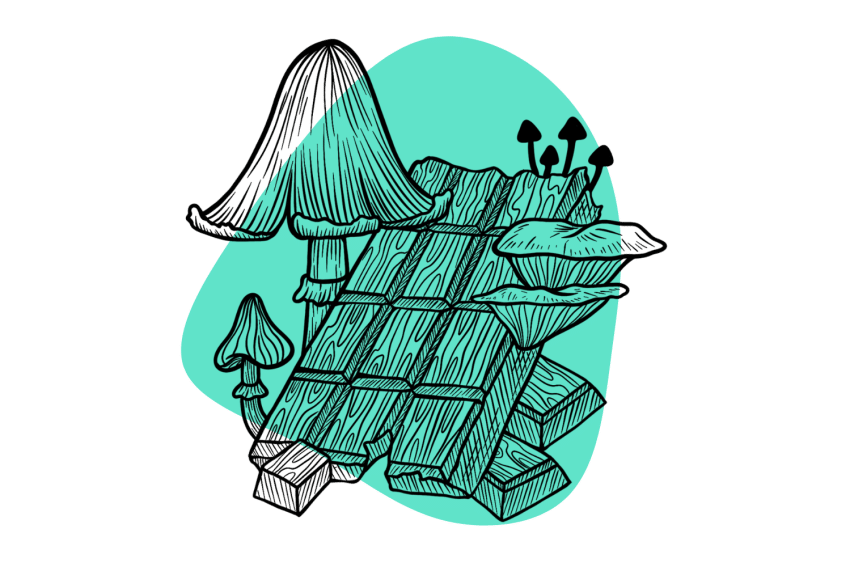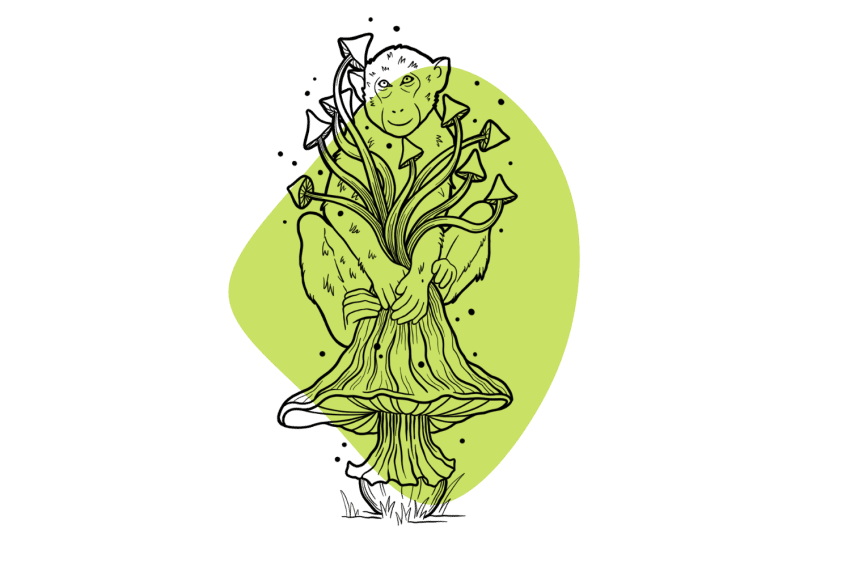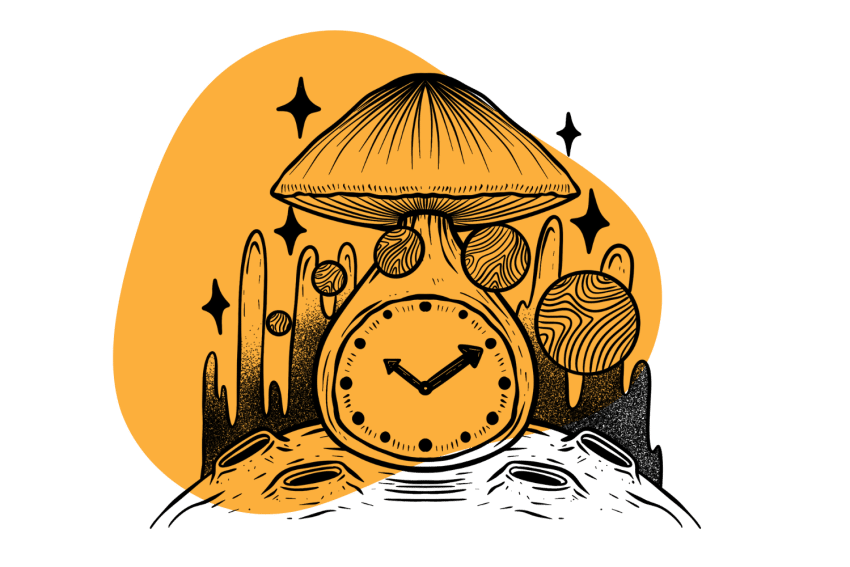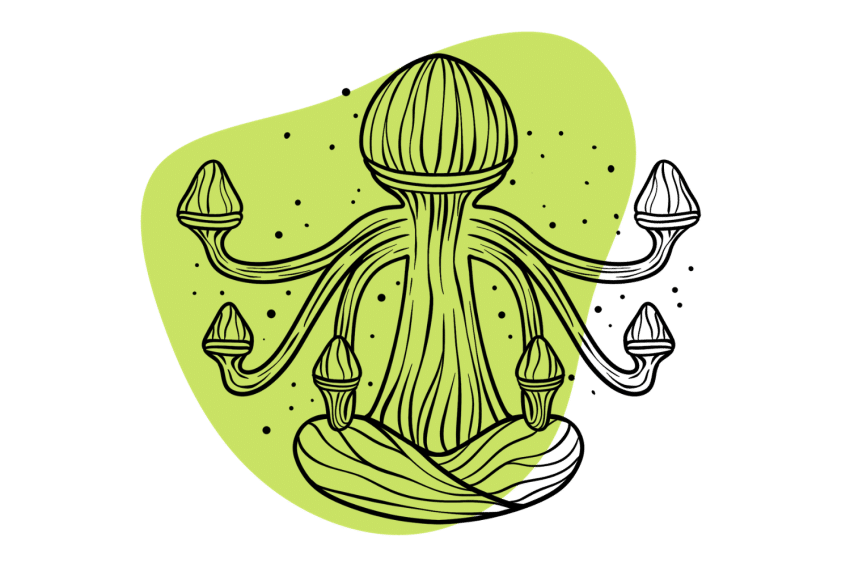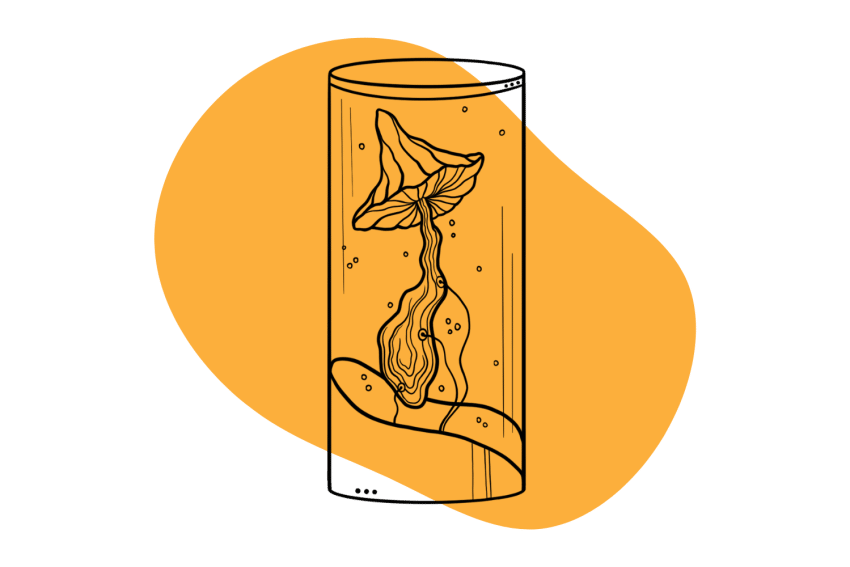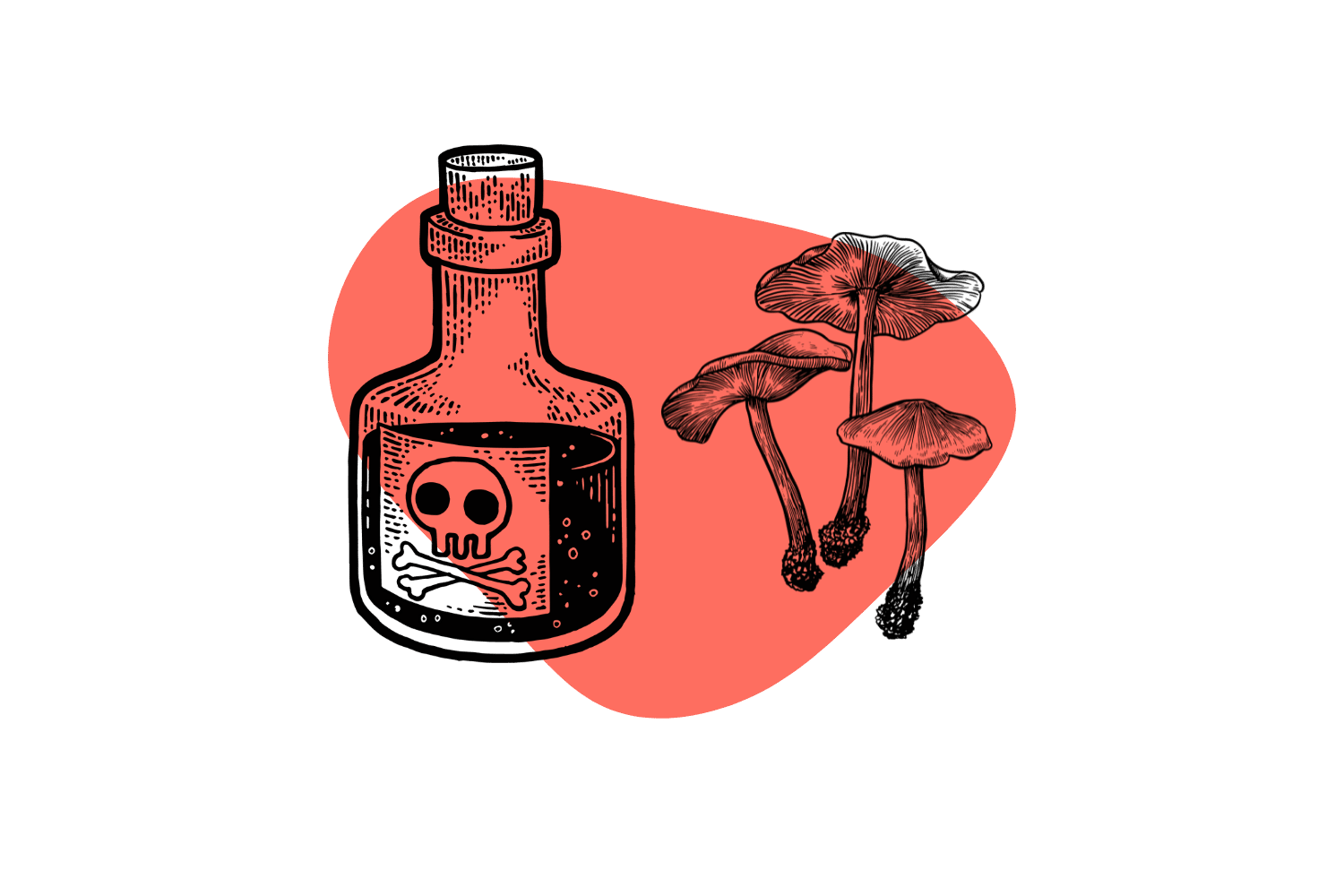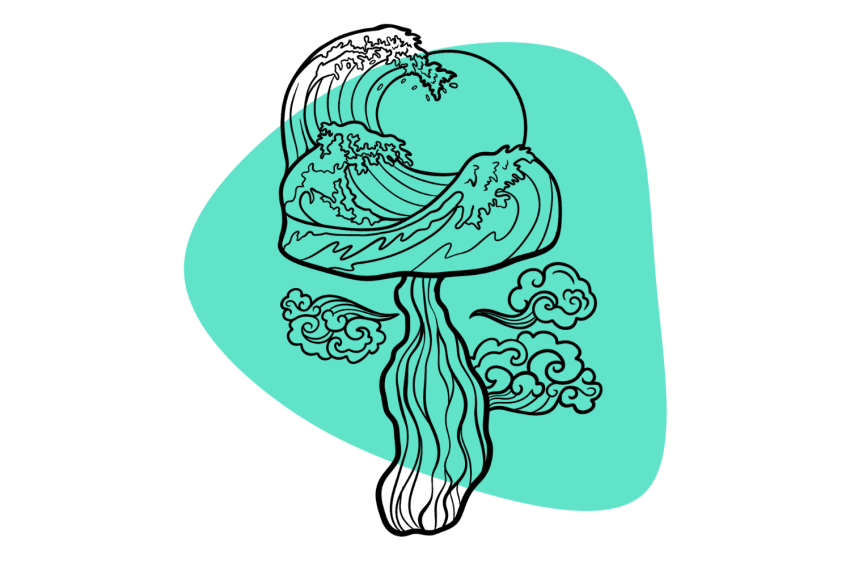Golden Teacher Mushroom Strain: Best Strain For Beginner Growers
These wise old mushrooms teach about subjects you can’t learn anywhere else.
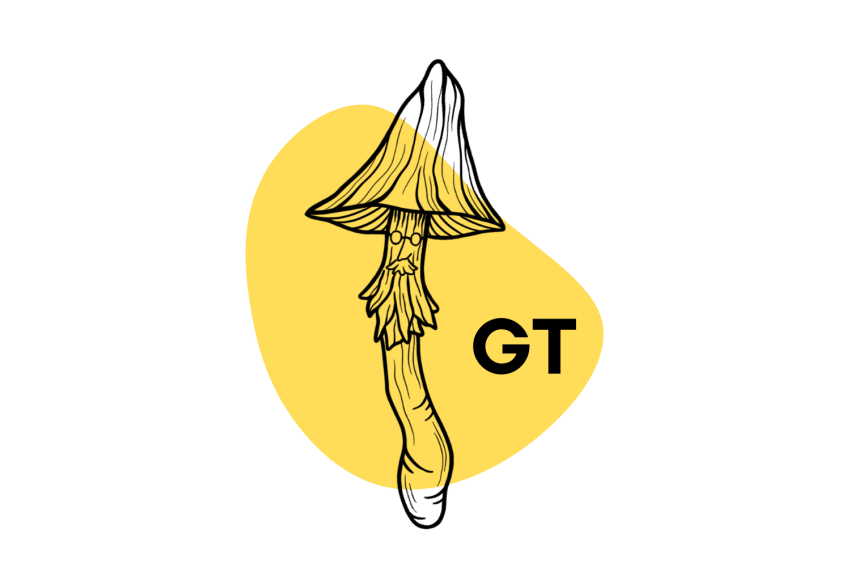
Golden Teachers are among the most ubiquitous of the so-called magic mushroom “strains.” They’ve been the most popular option among new and experienced growers alike for decades and remain a top choice to this day.
These shrooms are known for their “gentle” nature and are often considered the baseline for comparing the potency of various magic mushroom strains today.
These famous psilocybin-containing mushrooms feature a distinct golden cap and form dense clusters of medium to large-sized mushrooms. They thrive in just about any substrate, are fast colonizers, and generally produce large yields over the course of 2–4 flushes.
The original sample is thought to have been collected from the Gulf region of the United States in the late 70s (unconfirmed).
Golden Teachers are just one of several hundred strains being sold on the open market. However, the very existence of many strains is debated among mycology experts.
A strain is essentially a distinct cultivar various growers have created through selective breeding. In order to qualify as a strain, the sample must have measurable and repeatable traits or characteristics between generations — such as differences in chemical makeup or growth patterns.
Many experts argue that most “strains” don’t technically qualify as strains at all and are merely marketing terms used to sell spores or grow kits. Some vendors will make up names for stock they’re trying to sell and associate seemingly random growth traits or effect profiles without justification.
A true strain is made by either harvesting a phenotypically unique sample from the wild or through selective breeding. Selective breeding is what’s allowed growers to develop strains with larger caps, enhanced disease resistance, higher potency levels, or albino characteristics.
Related: List of All Known Magic Mushroom Strains.
Golden Teacher Specs
| Potency | Average 🍄 |
| Cultivation | Easy |
| Species | Psilocybe cubensis |
| Suggested Substrate | Brown Rice Flour + Vermiculite (BRF Tek) |
| Cost | $ |
| Sold By | MYYCO, Miracle Farms, Spores 101, Mushroom Prints |
Golden Teacher Variations & Genetic Relatives
Golden Teachers have been around for a long time and have been the dominant strain on the market for decades. Many of the strains listed on the market today likely are either Golden Teachers rebranded as something else or were selectively bred or crossed from Golden Teachers.
A few examples of strains derived from Golden Teacher genetics include True Albino Teacher, White Rabbit, Yeti, Alcabenzi, Golden Emperor, and Golden Halo.
The essential characteristic of this strain is the gold-yellow caps. While we can’t be sure exactly which strains were derived from Golden Teachers, there are quite a few that share the gold-colored tops and have a high likelihood of being offshoots from this well-known mushroom.
Mushroom strains that feature golden caps:
Where to Buy Golden Teacher Mushrooms
You can find Golden Teacher genetics from virtually all the major spore vendors in the United States, Canada, and Europe. This is one of the most common strains in existence and has been around for decades at this point.
We highly recommend this strain if you’re just getting started growing magic mushrooms.
Here are some of our favorite vendors depending on where you live.
- If you’re in the United States — MYYCO, Spores 101, Miracle Farms
- If you’re in Canada — Sporeslab, Blue Goba, Spores 101
- If you’re in Europe — The Magic Mushrooms Shop
Related: Where to Buy Magic Mushroom Spores.
How to Grow Golden Teacher Mushrooms
Magic mushrooms are surprisingly easy to grow. You can get started yourself with equipment that’s probably already lying around your house or can be picked up at your local hardware shop or gardening center.
To get started, you’ll need to pick up some Golden Teacher spores, or a magic mushroom grow kit that contains live GT mycelium.
Golden Teachers are known for their ease of cultivation. They’re fairly contaminant-resistant, have fast colonization rates, and are less sensitive to underoptimized growing conditions. This could be because this is a wild strain, unlike a strain selectively bred in captivity.
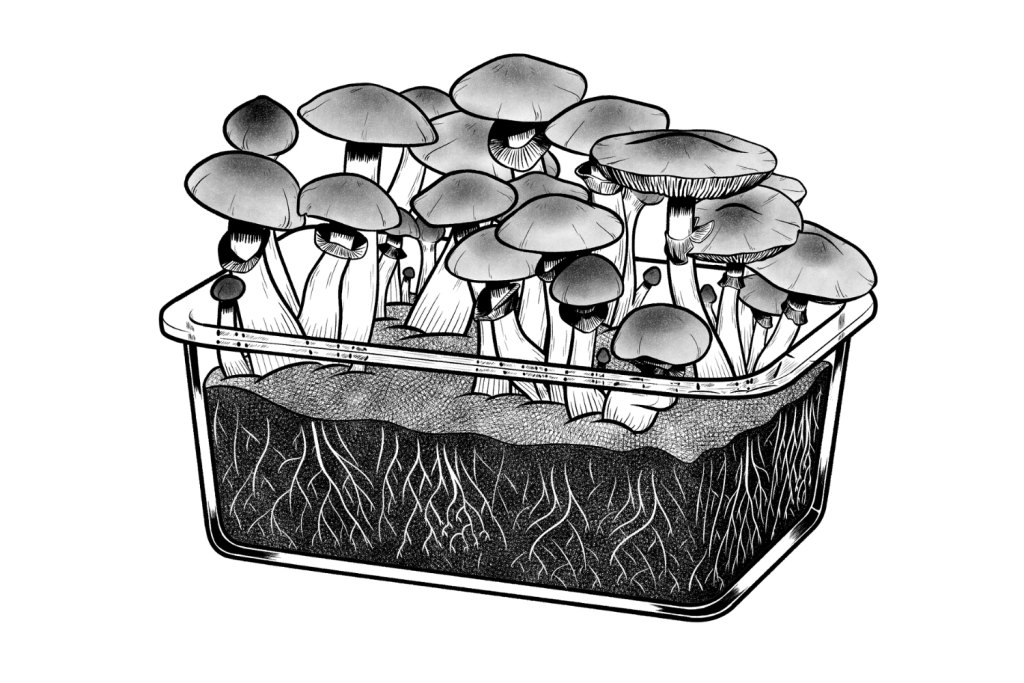
You can grow Golden Teachers on popular mushroom substrates, including rye grain, BRF tek, Uncle Ben’s tek, manure, wild bird seed, etc.
This is one of the strains I recommend new growers start with because of their dependable potency, widespread availability, and relative ease of cultivation.
Other Beginner Mushroom Species
Golden Teachers aren’t the only strains recommended for beginner growers.
Generally speaking, a good beginner strain is any strain that’s easy to find, has fast colonization rates, is less prone to aborts, and is tolerant to underoptimized fruiting conditions.
Some of the best beginner mushroom strains include:
- A Strain
- Alcabenzi
- Amazon
- Argentina
- Allen Strain
- B+ Strain
- Ban Hua Thanon
- Bix Mex
- Blue Meanies
- Burma
- Ban Nathon
- Brazilian
- Ban Thurian
- Chilean
- Cambodian
- Colombian
- Costa Rican
- Creepers
- Fiji Cube
- Gulf Coast
- Hanoi
- Hawaiian
- Honduran
- Koh Samui
- Mexicube
- Menace
- Mestizo
- Malabar India
- Mississippi
- Mazatapec
- Orissa India
- Panama
- Paraguay
- Pink Buffalo
- Peru
- Puerto Rican
- R44 Cubensis
- South American
- Tasmanian
- Thai
- Transkei (South African)
- Wollongong
- Yosterizii
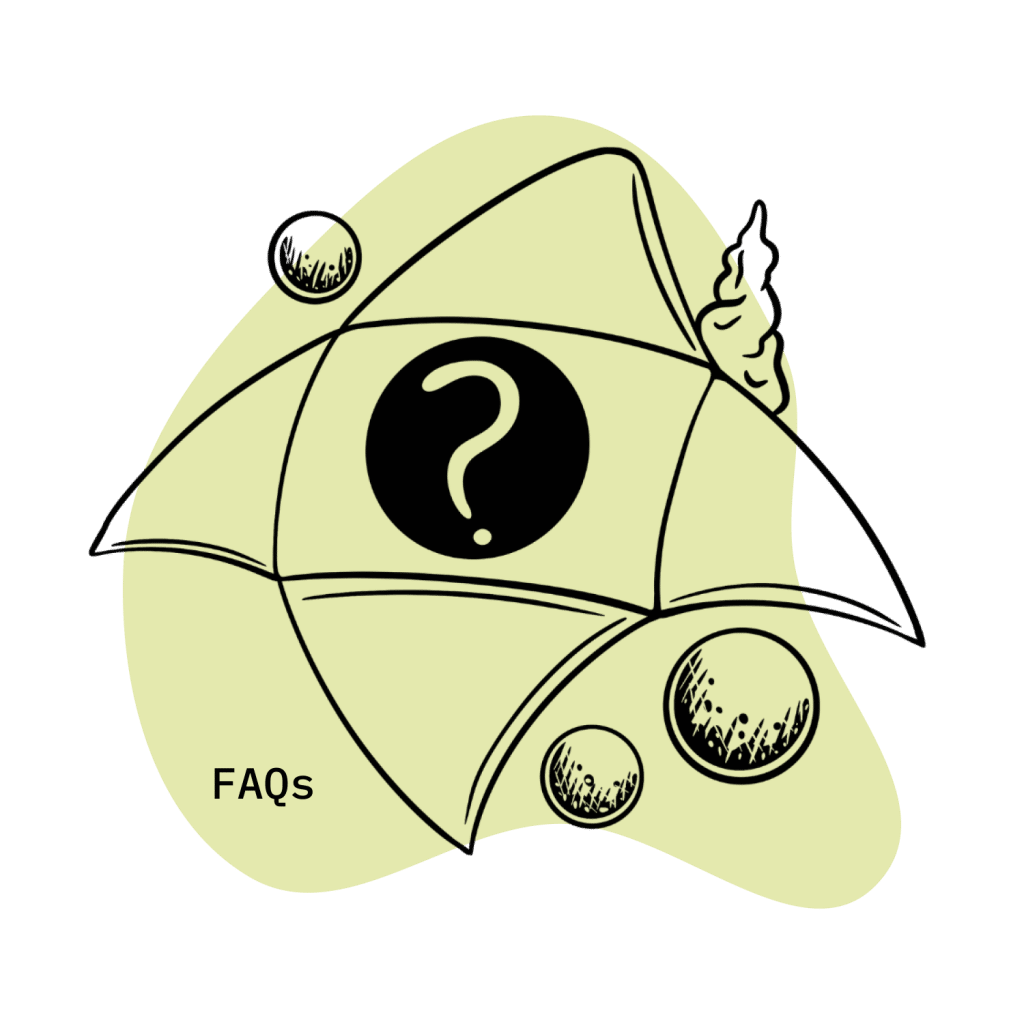
Golden Teacher FAQs
1. How Potent Are Golden Teachers?
Golden Teachers are considered average in terms of potency. There are many strains that are more potent (such as Penis Envy, Fuzzy Balls, or Tidal Wave); and many strains that are weaker (such as Cambodian and Burma).
Through data collected by the Psilocybin Cup, we can determine the potency range for Golden Teachers is between 0.7% and 1.2% total tryptamines (psilocybin, psilocin, and related compounds).
2. How Long Do Golden Teachers Take To Grow?
Golden Teachers are about average in terms of how fast they grow. With the right environmental conditions (temperatures between 22 and 27ºC and humidity levels over 80%), you can expect to go from spore to harvest within two months.
3. Where Do Golden Teachers Get Their Name?
The true origins of Golden Teacher are unknown, but the name is believed to be derived from their golden-colored caps. The psychedelic nature and history of magic mushroom use is likely the reason behind calling these mushrooms “teachers.”
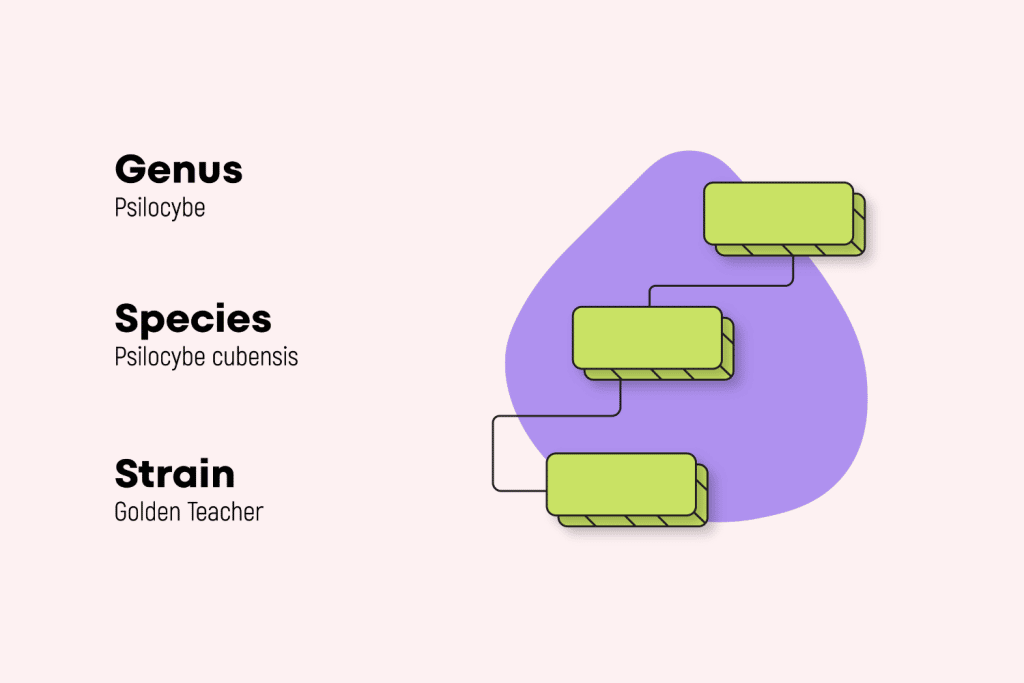
4. How Do I Take Golden Teacher Mushrooms?
There’s no particular way of using Golden Teachers different from other mushrooms. You can eat the fresh or dried mushrooms as-is, prepare them into a tincture, or make psilocybin-infused honey, chocolates, or capsules.
Many people like to take dried mushrooms using the lemon tek method (faster absorption and improved flavor); others prefer to grind them into a powder and combine them with ingredients like L-theanine and caffeine to make DIY microdose capsules.
5. What’s The Dose of Golden Teachers?
Golden Teachers are often used as the baseline for comparing the dose of magic mushrooms. This means the standard dosage ranges for any Psilocybe cubensis will work for Golden Teachers:
- Microdose — 0.2–0.5 grams
- Threshold Dose — 0.5–1 gram
- Standard Psychoactive Dose — 2–3 grams
- Heroic Dose — Over 5 grams
The optimal dose of magic mushrooms depends highly on the individual (genetic factors, metabolism, size, and weight), as well as other factors, including set and setting (mindset, company, current mood, and environment).
For a more detailed estimate according to your weight and desired experience, check out our handy magic mushroom dosage calculator.
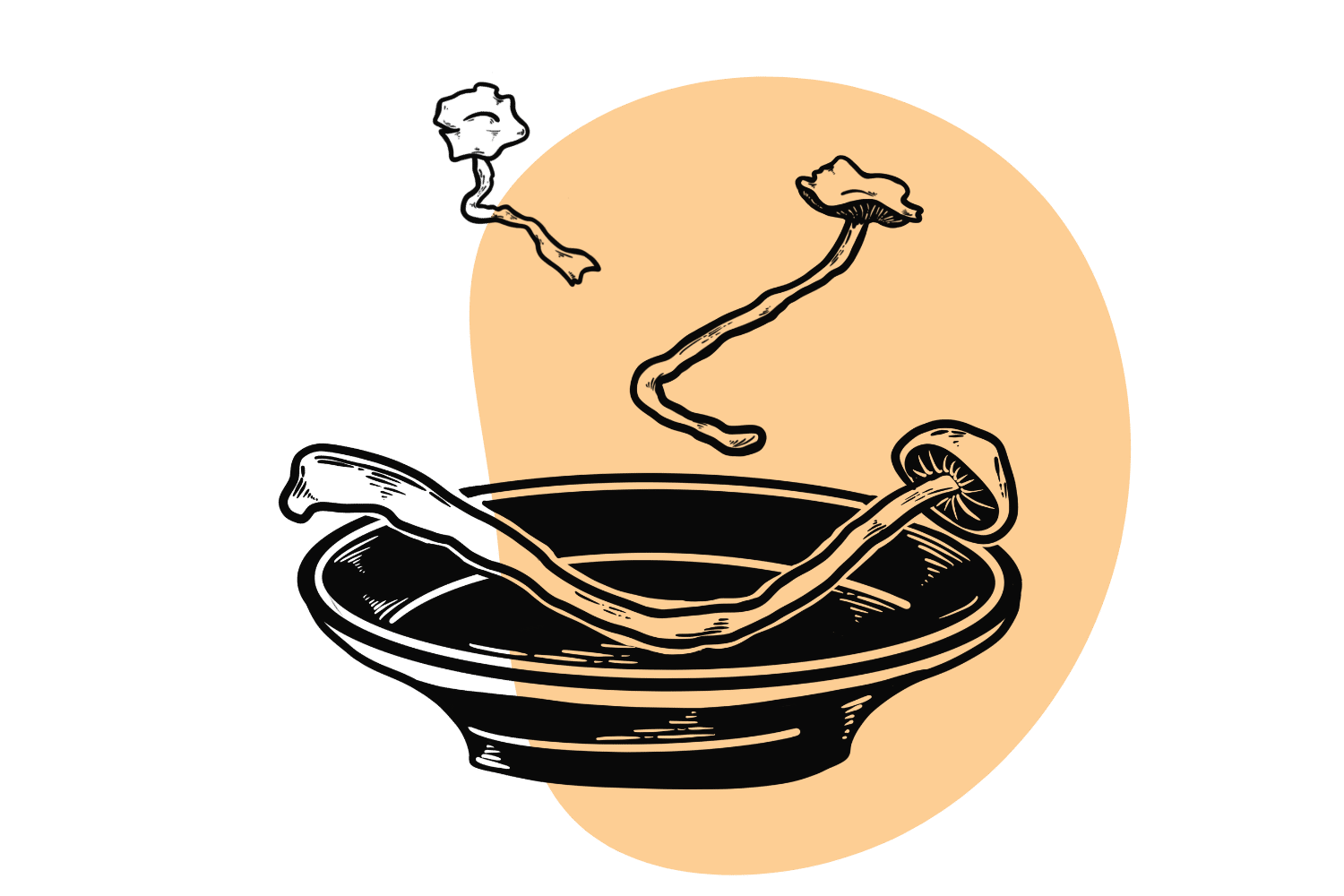
It’s important to pay attention to the fundamentals of responsible psychedelic use before taking Golden Teachers or any other magic mushroom strains.
6. Are Golden Teachers Legal?
Magic mushrooms are illegal in most countries, including the United States and Canada. However, in recent months, some municipalities have moved to decriminalize magic mushrooms and other natural psychedelics — such as the state of Oregon, Vancouver (Canada), and a handful of cities in California, Colorado, Massachusetts, and Michigan).
Related: Decriminalization vs. Legalization: What’s the Difference?
In these places, magic mushrooms are still listed as illegal. Still, offenses no longer qualify as criminal charges — cultivation and possession in these places usually involve a fine or confiscation rather than jail time or a criminal record.
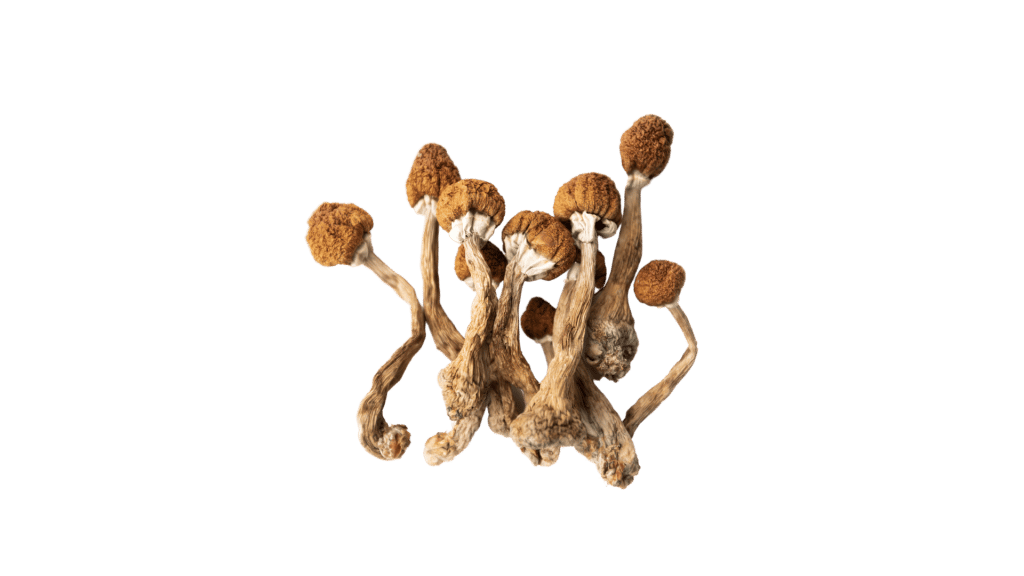
Magic mushroom spores, including Golden Teacher spores, are legal throughout the United States (with the exception of California, Georgia, and Idaho), Canada, and Europe.
You can also order mushroom grow kits containing live mycelium in Canada and the Netherlands.

